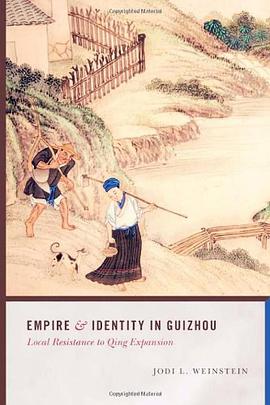Empire and Identity in Guizhou
Douban
Local Resistance to Qing Expansion
Jodi L. Weinstein
overview
This historical investigation describes the Qing imperial authorities' attempts to consolidate control over the Zhongjia, a non-Han population, in eighteenth-century Guizhou, a poor, remote, and environmentally harsh province in Southwest China. Far from submitting peaceably to the state's quest for hegemony, the locals clung steadfastly to livelihood choices-chiefly illegal activities such as robbery, raiding, and banditry-that had played an integral role in their cultural and economic survival. Using archival materials, indigenous folk narratives, and ethnographic research, Jodi Weinstein shows how these seemingly subordinate populations challenged state power.
contents
Foreword by Stevan Harrell
Acknowledgments
Maps
1. Guizhou and the Livelihoods Approach to Zhongjia History
2. Natural, Human, and Historical Landscapes
3. The Consolidation of Qing Rule
4. Livelihood Choices in the Mid-Eighteenth Century
5. The Nanlong Uprising of 1797
6. A Legacy of Fragile Hegemony
Notes
Chinese Glossary
Bibliography
Index